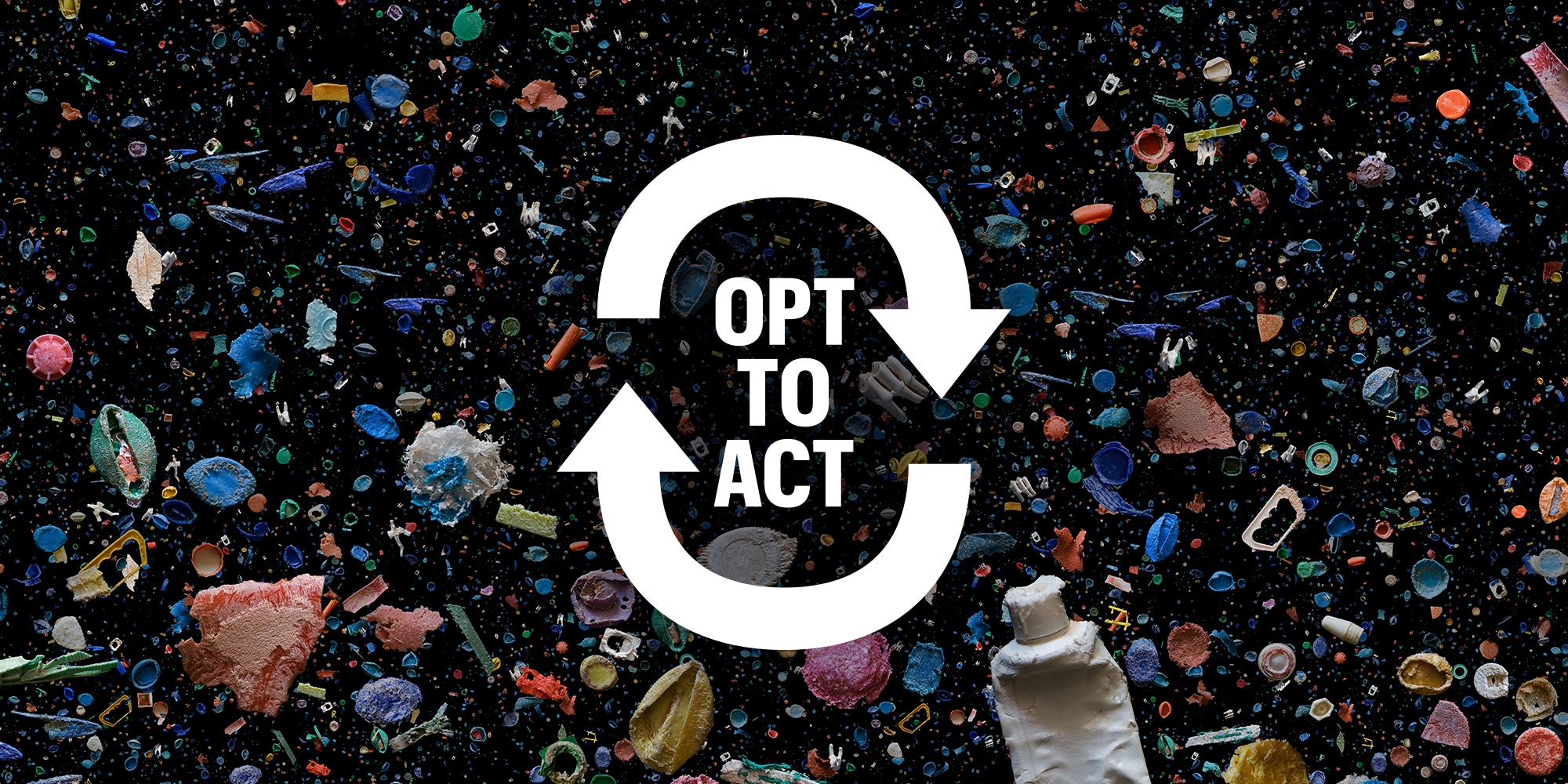Jenni Gritters, Garrett Musar and Hannah Johnson contributed to this article, along with dozens of REI staff members who shared their tips.
#OptOutside is just the beginning. Continue to act with 52 weekly challenges to reduce your impact, get active and leave the world better than you found it.
On their own, none of these 52 actions are going to save the world. But each week offers a chance to incorporate more eco-friendly behavior into your everyday life. And if we all start being better, together, we can do a lot of good.
Calendar Overview
- December 2019
- January 2020
- February 2020
- March 2020
- April 2020
- May 2020
- June 2020
- July 2020
- August 2020
- September 2020
- October 2020
- November 2020
Download a printable version of the 52-week action plan or sign up for weekly calendar notifications.
December
Week 1: Make cleaning up a part of your daily habits.
If you joined the #OptOutside nationwide cleanup on Black Friday, you’re off to a great start on this weekly challenge. Thanks to everyone who got out, cleaned up and left the world better than you found it. Now, let’s keep the action going with 51 more weeks of simple, actionable tasks. Make cleaning up a part of your day-to-day life this week: While you’re out, pick up and properly dispose of litter you come across. And don’t forget to recycle whenever possible.
Take part: Dec. 1–7, 2019
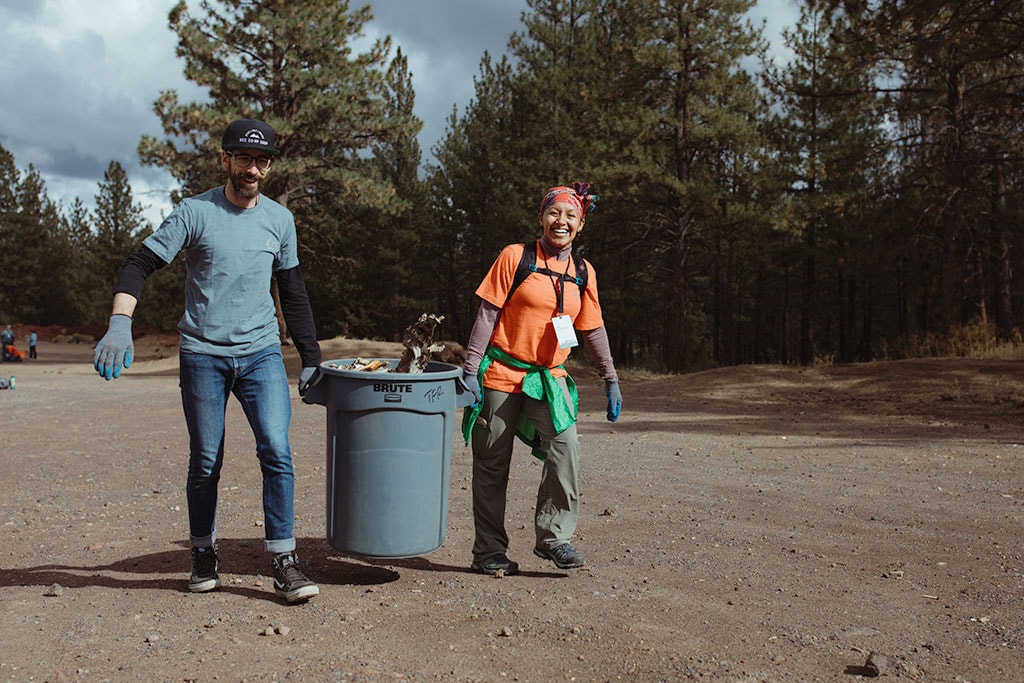
Week 2: Go bagless. Carry reusable bags for all shopping.
You can drive a mile on the petroleum it takes to manufacture 14 plastic bags, and paper bags typically require four times as much water as plastic, according to Stanford Magazine. Plastic bags can take up to 1,000 years to break down in a landfill and when they escape into the natural environment can have devastating effects on wildlife. As a result of their collective impact, many states have banned plastic bags. This week, make a mental note to grab your reusable bags before you head to the store. Through REI’s Leave a tote, take a tote program, you can donate your extra reusable shopping bags in 23 REI stores across the country, and if you’re shopping and forgot yours at home (again), take a tote.
Take part: Dec. 8–14, 2019
Week 3: Opt out of junk mail.
Each year, Americans receive an estimated 4 million tons of junk mail. And around 40 percent of that mail ends up in a landfill without ever being opened. There are a number of ways you can limit unwanted mail from coming to your mailbox. Call 1-888-567-8688 or visit OptOutPrescreen.com to stop receiving prescreened credit card and insurance offers. The Data and Marketing Association sends out a lot of mail, but for $2 you can block unwanted mail from the DMA for 10 years. You do have to register and mark which types of marketing you don’t want to receive, but it only takes a few minutes. You can also opt out of coupon packs here. The Federal Trade Commission also provides a detailed guide for stopping a whole host of unsolicited mail.
Take part: Dec. 15–21, 2019
Week 4: Forgo traditional wrapping paper to cut down on waste this holiday season.
Most wrapping paper, especially that sparkly, shiny stuff, isn’t recyclable. We also generate a lot of additional waste overall during the holidays—25 million extra tons in the United States between Thanksgiving and New Year’s Eve, according to a Stanford University report. This year, wrap your gifts in more sustainable wrapping alternatives, like cloth (think: spare curtains, old towels or unneeded bedsheets), recyclable brown paper (which you can buy in bulk), reusable or recyclable wrapping (check out Maika, a cotton-based wrapping company that uses soy ink, or Ikea, which carries all-recyclable wrapping paper options), or even a reusable bag. You might also consider giving your loved one an experience rather than an item, so there’s nothing to wrap at all.
Take part: Dec. 22–28, 2019
Week 5: Make your New Year’s resolution an environmentally sustainable one…for example, keep following this plan.
If you want to go beyond this 52-week action plan, another resolution we recommend is calculating your carbon footprint. Then, set a goal to lower it by a certain percentage by next year. Whatever you choose, knowing the factors that contribute to your carbon footprint can help you better monitor your output.
Take part: Dec. 29, 2019–Jan. 4, 2020
Back to top
January
Week 6: Get familiar with your local recycling and composting options and guidelines.
Each local government in the United States sets its own rules for what’s recyclable and compostable, so take a moment to look up the instructions for your neighborhood. Your municipality or county website should include information about what to recycle and where, plus pickup times. Some communities even offer composting pickup services and printable instruction manuals, which you can pin up above the bins in your house. If you’re still puzzling over what to do with those especially confusing items (like batteries or old electrical cords), Earth911 provides an online recycling search tool where you can type in the name of a waste item and the website will tell you where to put it, depending on your location. The EPA also has a guide for how to recycle common items.
Take part: Jan. 5–11, 2020
Week 7: Recycle snack wrappers in a Subaru Loves the Earth TerraCycle bin at your local REI.
You can now recycle snack wrappers at an REI store near you, thanks to a partnership with Subaru. As long as they’re clean, individual, multipack and family-size snack bags and wrappers, including chip, candy and granola wrappers, are all accepted. Collect all your snack wrappers and bring them with the next time you stop by REI.
Take part: Jan. 12–18, 2020
Week 8: Celebrate Dr. Martin Luther King Jr.’s legacy by getting out and serving others.
Every January, the country celebrates activist and civil rights leader Dr. Martin Luther King Jr. with a day of service in memory of the inspiring leader’s dedication to nonviolence and helping others. This year, MLK Day falls on Monday, Jan. 20. If you can, plan to take the day (or organize a group work outing) to volunteer at a nonprofit organization in your community.
Take part: Jan. 19–25, 2020
Week 9: Try to go paperless for one day this week.
Try using a washcloth in place of paper towels. Bring a reusable bag with you for all shopping. (Remember our tips from week two!) Ask for an email receipt rather than a printed one. Instead of a hard copy, use apps for coupons, tickets and more.
Take part: Jan. 26–Feb. 1, 2020
Back to top
February
Week 10: Call your utility companies to ask about green energy options.
Green energy options will vary depending on where you live, but solar and wind are two of the most prevalent options. Better yet, many energy companies offer rebates and incentives for going green. If you’d like to take things a step further, you can also qualify for incentives, rebates and tax breaks for installing your own solar panels. North Carolina Clean Energy Technology Center maintains a database of state and federal incentives and policies.
Take part: Feb. 2–8, 2020
Read More:
- Low-Cost Green Energy Comes to Texas
- GTM: Washington State Spearheads a Novel Clean Energy Solution for Starbucks, REI and Target
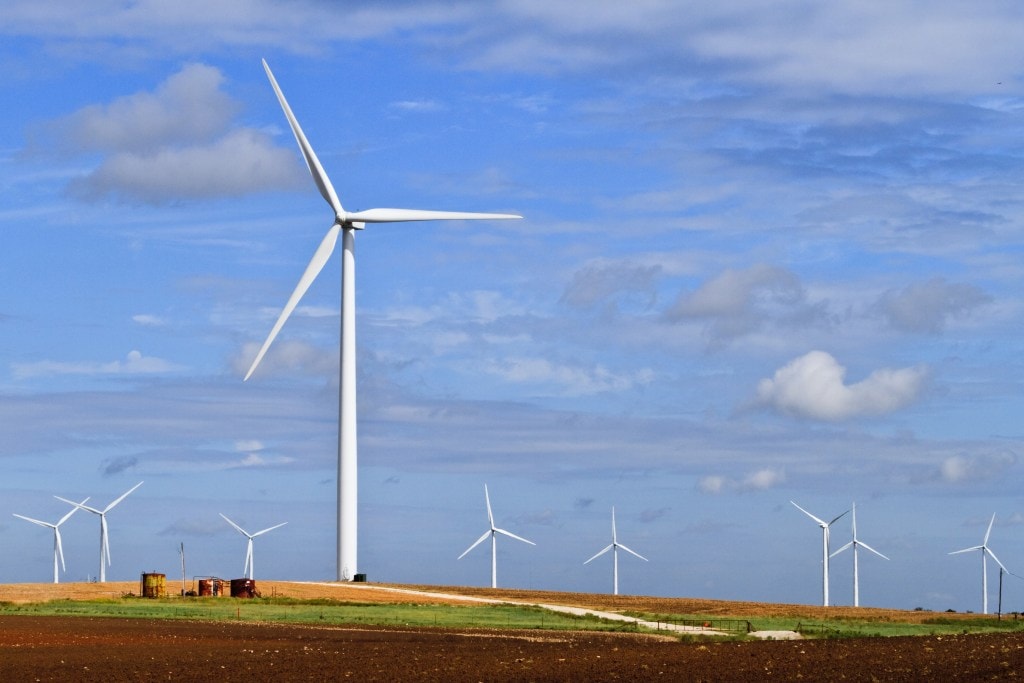
Week 11: This Valentine’s Day give a plant or local in-season flowers instead of roses.
Yes, that bouquet seems romantic. But in reality, the cut flower industry relies heavily on imported flowers—in 2017 alone, the U.S. imported more than 4 billion roses from Colombia, according to The Washington Post. Those imported flowers also are often treated with pesticides and packaged with tough-to-recycle materials like cellophane. So this year, think local: Purchase a plant from your local nursery for a loved one, or support a local grower from a flower farm in your area.
Take part: Feb. 9–15, 2020
Read More: DIY: How to Plant and Grow Herbs in a Pot
Week 12: Go meatless one day this week
This week, hop on the Meatless Monday (or Tuesday or Wednesday) train. Plan at least one day of plant-based meals (the food blog A Couple Cooks has a great lineup of menu ideas for inspiration) and you’ll be joining a global effort launched by the Monday Campaigns and Johns Hopkins Bloomberg School of Health to try to reduce meat consumption in the U.S. by 15 percent. There are so many reasons to join this effort: The health benefits of eating vegetables include adding important nutrients to your diet (like potassium, dietary fiber, folate (folic acid), vitamin A, and vitamin C, for example), plus a reduced risk for developing heart disease, obesity and type 2 diabetes. Even one day of vegetarian livin’ each week can help reduce the environmental impact of the livestock industry, which accounts for more than 14 percent of global greenhouse gases every year. Finally, cooking vegetarian meals can give you a reason to get creative. Head to your local market (the closer the veggies were grown, the better) then whip up a pan of this delicious vegetarian shakshuka for dinner tonight.
Take part: Feb. 16–22, 2020
Week 13: Switch to electronic bill notifications and payment.
As with the challenge in week three, this step cuts down on the clutter in your mailbox and the resources behind the clutter. Beyond that, hopefully it makes your life a little easier, too. You can simply search for the bill in your inbox, reducing the risk of misplacing or losing a hard copy. And you can set up automatic payments online, so you don’t have to worry about missing a bill (plus, you’ll save yourself the cost of postage).
Take part: Feb. 23–29, 2020
Back to top
March
Week 14: Ask a friend to join you in reducing your impact and acting on climate change.
If you can get a friend to join you, you just doubled your impact. Encourage them to join in this year-long plan or share these five simple tips to act on climate change. If you’re interested in more information about Americans’ current perspective on climate change, check out this report from the Yale Program on Climate Change Communication.
Take part: March 1–7, 2020
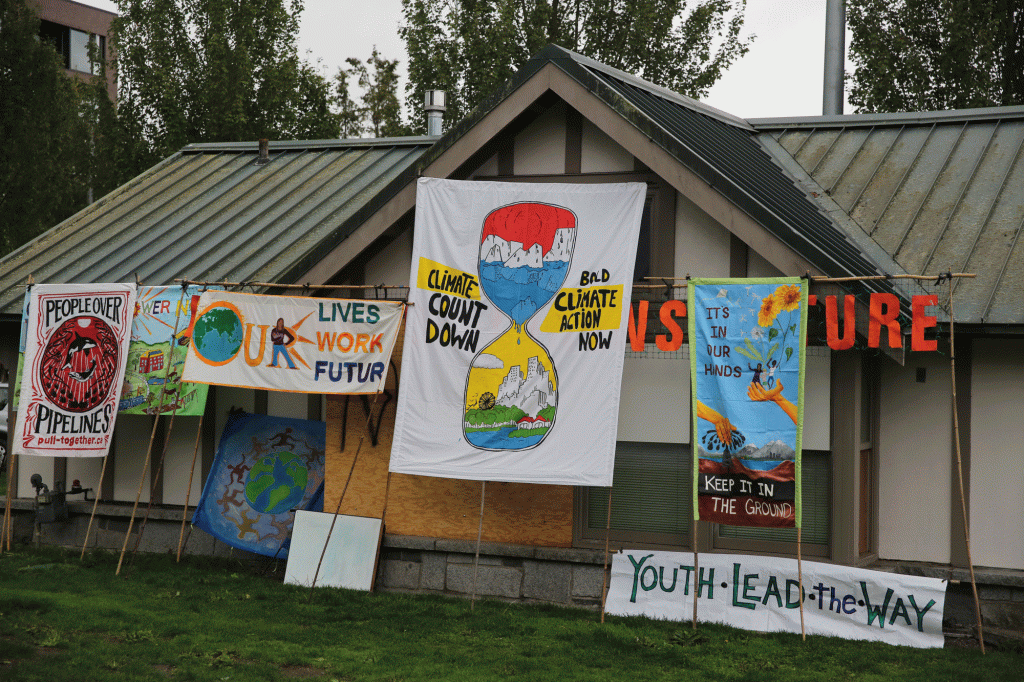
Photo Credit: Alissa Hudson
Week 15: Count the number of single-use plastic items you use this week.
Conduct a waste audit in your home and at work to determine which products are made from plastic. From there, identify what you might be able to swap for more durable, reusable alternatives. According to the Earth Policy Institute, each year, 17 million barrels of crude oil are extracted to manufacture the plastic water bottles used in the U.S. alone. In addition to fossil fuel consumption, creating plastic bottles can take twice as much water than just refilling a reusable bottle.
Take part: March 8–14, 2020
Week 16: Try to use half as many single-use plastic items as last week.
Now that you’re aware of the single-use plastic items you’re using, try to cut that number in half. And know that we’re right there with you. Of REI’s current waste stream, more than 20 percent is made up of thin-film plastic, including polybags (the clear plastic bags used to ship apparel). By the end of this year, REI employees and customers will see a substantial reduction in polybags. REI Co-op brand apparel is already polybag-free, but they’re still common across the outdoor industry. That’s why we’re sharing our techniques and working hard with partners to make sure we all produce less waste, this week and every week.
Take part: March 15–21, 2020
Week 17: Spring cleaning time! Donate old items instead of throwing them out.
Americans toss out about 4.4 pounds of trash every single day, according to the EPA. Add that up and you get roughly 728,000 tons of garbage heading to the landfill each day, which contributes to methane pollution. Instead of adding to that ever-growing pile, consider donating your useable items post-cleaning session. We recommend searching for consignment shops in your area or heading to a local Goodwill or the Salvation Army.
Take part: March 22–28, 2020
Week 18: Buy food in bulk and bring your own containers and bags to the store.
Buying in bulk (and bringing your own container) helps cut down on packaging. And bulk products can also be the cheaper, fresher option. Depending on where you’re shopping, you can often by grains, nuts, cereals, candy, spices, coffee and more in bulk. But be mindful when buying in bulk not to overbuy—or consider freezing where appropriate. While you’re at it, bring your own bags for produce instead of reaching for one of the single-use plastic bags at the store. Make sure to get the empty tare weight of any containers before filling it so you’re not overpaying.
Take part: March 29–April 4, 2020
Back to top
April
Week 19: Leave washable cutlery and tableware at work for greener lunches.
Single-use plastic cutlery is not recyclable. To avoid that waste, bring your own cutlery to work that you can wash and store for reuse. To take this challenge a step further, examine your entire workday. Can you carpool, bike or take public transportation to the office? Can you get coffee and other beverages in reusable cups? Can you share a document or presentation digitally instead of printing? After you’ve taken stock of your own workday, learn if and how your employer is taking steps to make the business greener.
Take part: April 5–11, 2020
Week 20: Read about environmental issues on Uncommon Path
Knowledge is power. Take some time this week to learn about climate change, rewilding, sustainability, activism or one of many more subjects on Uncommon Path. Take this challenge a step further by sharing what you’ve learned with a friend or family member.
Take part: April 12–18, 2020

Week 21: Celebrate Earth Day by contacting your local representative to advocate for environmental action.
Calling or emailing your local, state and federal lawmakers matters because it shows them that the people they’re representing care about certain issues. This year, to celebrate Earth Day (which falls on April 22, 2020), make plans to call your representative and tell them how much you care about the environment. Don’t know who to contact? Here’s how you can look up your representatives.
Take part: April 19–25, 2020
Week 22: Unplug home appliances you rarely use to save energy.
There’s a vampire in your house. And no, it’s not the one in those Twilight books you pretended not to read. Rather, it’s vampire power—the phantom power that’s being sucked out of your electrical outlets even when your devices and appliances aren’t turned on. Each year, vampire power costs Americans an estimated $3 billion. So this week, make a note to turn off and unplug your TV, your electric toothbrush and your blender when you’re not using them. That goes for your phone charger and your laptop charger, too. You might also look at buying Energy Star-rated appliances, which are more energy efficient and can reduce your electric bills. Some companies even provide rebates for buying Energy Star appliances.
Take part: April 26–May 3, 2020
Back to top
May
Week 23: Don’t wash your jeans all month.
Each year, an estimated 1.5 million tons of microplastics end up in the ocean, and about 35 percent of those come from washing synthetic textiles, a 2017 report from International Union for Conservation of Nature and Natural Resources found. Yes, even just the act of washing your clothing is releasing tiny bits of plastic into the environment. The best way to curb your release of microplastics is to, first and foremost, wash your clothing less and when you do wash, avoid washing on delicate wash cycles. A Newcastle University study found that delicate wash cycles, which can use twice as much water as a standard cycle, release on average 800,000 more microfibers as compared to a standard cycle. Some additional tips: Invest in a filter for your washing machine and use a LANGBRETT Guppyfriend washing bag.
Take part: May 3–9, 2020
Week 24: Plant something native and green this week.
Instead of relying on imported plants, which are often sprayed with pesticides and can carry a hefty transportation burden, shop for, and then pot plants that are native to your region. Native plants are more likely to have evolved in your region and have a greater chance of thriving in local soils. They’re also better prepared to withstand whatever regional weather comes their way, according to the National Wildlife Federation (NWF). Native plants are more likely to attract birds and butterflies to your home, too. Check out the NWF’s Native Plant Finder tool, which provides a list of local plants, ranked by the number of species they support.
Take part: May 10–16, 2020

Week 25: Use public transportation, carpool, bike or walk to one event this week.
Emissions from vehicles make up 29 percent of the total U.S. greenhouse gas emissions released, according to the EPA. By choosing not to drive even once or twice this week, you can make a small but important dent. Instead, opt to bike and take part in National Bike Month, walk, carpool or ride public transportation to work or an event. You’ll log a workout, meet some new people and help to reduce environmental pollution.
Take part: May 17–23, 2020
Week 26: Ditch the chemicals. Warm water, vinegar and elbow grease make a great household cleaner.
Have you ever looked at the labels on your bottles of household cleaner? Although traditional cleaners can be effective at getting rid of the dirt and germs that may be hiding on oft-used surfaces, many cleaners also contain not-so-great chemicals that contribute to smog and can be toxic to pets. (The EPA flags phosphorus, nitrogen and ammonia, in particular, as “volatile organic compounds” to avoid.) As an alternative, mix warm water and vinegar together (use a one-to-one ratio) with a few drops of a fresh-smelling essential oils, like lemongrass or orange. Shake to combine, then spray the cleaner on your counters, use some elbow grease to clean dirty areas, and wipe dry. The Spruce has a guide to making your own cleaners if you need additional suggestions.
Take part: May 24–30, 2020
Week 27: Volunteer for a trail cleanup to celebrate National Trails Day.
National Trails Day is this Saturday, June 6, but there’s no wrong day to get out and volunteer. Find a trail cleanup near you. And on your way out, grab a friend or two or eight to maximize your impact. If possible, try to carpool or ride your bike to the trail. Your local REI may even be hosting a trail cleanup.
Take part: May 31–June 6, 2020
Back to top
June
Week 28: Find a way to do without one item on your shopping list.
This week, embrace a more intentional approach to shopping and pick one item on your list that you could go without. Single-use items are an easy thing to eliminate, and you might rethink what necessary really means. Do you need an extra bottle of shampoo this week, or could you use what you have for two more weeks and then refill that bottle at a local bulk goods shop? Remember, all manufactured goods have a full life cycle of impact from the point of extracting materials from the ground, to manufacturing, transporting, using and disposing—it all adds up.
Take part: June 7–13, 2020
Week 29: Add a book about an environmental issue to your summer reading list.
Add one (or two!) of these books to your library queue for the summer and you’ll feel both informed and inspired to take on your own brand of environmental activism.
- Drawdown, by Paul Hawken, offers “the most comprehensive plan ever proposed to reverse global warming,” as stated on the book’s cover.
- Plastic Free, by Beth Terry, provides a holistic guide to plastics in your daily life with a wealth of knowledge and preferred alternatives to guide you on a more healthy, environmentally conscious path.
- The Omnivore’s Dilemma, by Michael Pollan, is a classic read that takes you inside the meat industry to help you understand how that industry impacts the world, the environment and our morality.
- The World Is Blue, by Sylvia Earle, explores the oceans and how human behavior could change what we see underwater in the coming decades.
- Storms of My Grandchildren, by James Hansen, a well-known climate scientist, looks at the serious environmental challenges facing our planet today, and how we can leave behind a more functional world for our children and grandchildren.
- This Changes Everything, by Naomi Klein, looks at the politics around climate change, corporations and the global system that got us here in the first place through statistics and data.
- The Story of Stuff, by Annie Leonard, highlights her take on the impact of overconsumption on our planet, health and communities. You’ll leave with an idea of the problems we face, but Leonard also offers a list of solutions you can implement in your own life.
- Desert Solitaire, by Edward Abbey, tells the first-person story of Abbey’s three seasons spent living in Moab, Utah, as he watches the beautiful lands around him start to crumble.
- Never Cry Wolf, by naturalist Farley Mowat, is a must-read for animal lovers. He was sent to the Arctic to investigate why wolves were killing caribou, and he came back with a book full of stories, myths and thoughts on the history of our changing planet.
- The Invention of Nature, by Andrea Wolf, follows the life of Alexander Von Humbolt, an early explorer and environmentalist.
- The Beekeeper’s Lament, by Hannah Nordhaus, follows a migratory beekeeper’s struggle to keep a species in decline, alive.
Take part: June 14–20, 2020
Week 30: Check your tire pressure to ensure optimal gas mileage.
Proper tire pressure can increase your gas mileage by 0.6 percent and in some cases, as much as 3 percent. You can find the exact tire pressure for your vehicle by consulting your owner’s manual. But before you start, make sure you’ve got the proper a-tire. (Sorry.)
Take part: June 21–27, 2020

Week 31: Become water wise in your home through mindful showering and dishwashing.
The EPA says 3 percent of the nation’s energy is used to pump and treat water for potable use. And heating water for things like showering and dishwashing is typically the second largest use of energy at home. Consider only running your dishwasher when it’s full—that can save nearly 320 gallons of water each year. Reducing your shower time and temperature can save energy, money and conserve water. Another trick: Turn off the water while shaving or shampooing your hair, then turn it back on for rinsing. Investing in a water-efficient showerhead also helps conserve water. Regular showerheads can use 2.5 gallons of water per minute, but water-efficient upgrades can get that down to less than 2 gallons per minute. Some cities offer rebates for switching to more efficient appliances.
Take part: June 28–July 4, 2020
Back to top
July
Week 32: Save money and energy. Switch to LED light bulbs in one room.
LED (light-emitting diode) light bulbs use less energy, last longer and often give off brighter and stronger light than other types of bulbs. The U.S. Department of Energy calls LEDs “the greatest potential impact on energy savings in the United States” because of the reduction in electricity that could occur if more people switch over to LEDs in the next decade. Plus, installing LED bulbs could lower your monthly energy bill. Convinced? Start by putting LED lights in just one room of your home, and then systematically replace the rest of your bulbs as they go out in the coming months.
Take part: July 5–11, 2020
Week 33: Repair an item instead of purchasing a new one.
The most environmentally friendly item is the item you already own. So, before you head out to buy something new, first see if you can make what you have last a bit longer. Expert Advice features a number of care and repair articles, from how to patch your down jacket to tips for fixing pilling. REI also sells repair kits to keep your gear going longer and offers repair services. In the end, if the item is beyond repair, consider used gear, borrowing from a friend or checking out your local secondhand store.
Take part: July 12–18, 2020
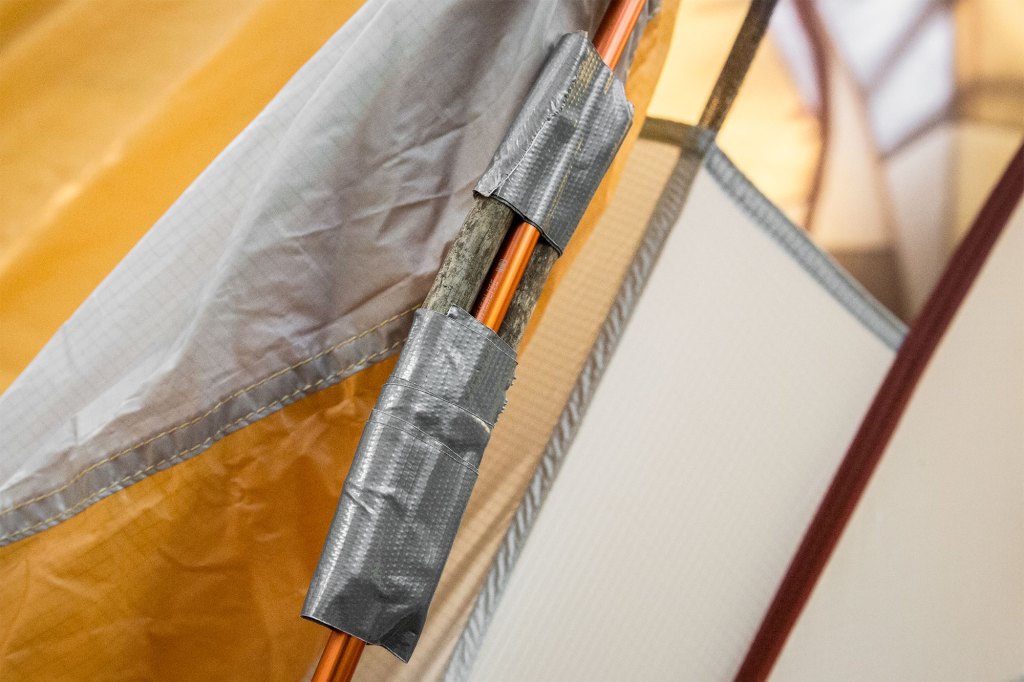
Week 34: Use your windows and shades to heat and cool your home.
Passive heating and cooling techniques mean you aren’t relying on forced air systems, like air conditioning and heating, to regulate temperatures in your home. Forced air systems account for 42 percent of U.S. household utility bills. Use your windows and shades to better regulate the temperature of your home. In the summer, close your windows and shades during the day to keep your home temperature regulated, and open the windows at night to allow for cooler airflow. In the winter months, keep shades closed at night to prevent heat loss. Another important step: Make sure your home is properly insulated and sealed; this can have a 25 percent reduction in total air infiltration, resulting in lower costs and more comfort. A home energy assessment can show where leaking may be occurring and provide suggestions for affordable repairs.
Take part: July 19–25, 2020
Week 35: Find a moment this week to be awed by nature.
At REI, we strongly believe that people won’t protect what they don’t know and love. That’s why bringing people closer to nature is integral to our mission. This week, take a moment to discover, nurture or rekindle a sense of awe for the outdoors. If you need help, here are a few simple tips. If you want a guide, sign up for a local experience with REI and we’ll show you something awe-some.
Take part: July 26–Aug. 1, 2020
Back to top
August
Week 36: Shop in person, locally and seasonally.
Driving less and choosing local foods (over imported foods) can reduce overall greenhouse gases—plus eating local is a fun way to learn about regional foods. Stop by a farmers market to get to know the growers in your community. Pro tip: Ask the farmers for recipes to go along with the in-season fruits and vegetables you buy. Some farmers markets will also have stalls full of local preserves and jams, sustainably raised meats, and homemade pastries and breads. Drooling yet? Follow along with Bon Appétit’s Farmers Market Challenge for recipe inspiration.
Take part: Aug. 2–8, 2020
Week 37: Buy or make plastic-free and nontoxic laundry detergent.
Whether it’s in a giant jug or individual pods, most laundry detergent comes in plastic packaging of some kind. This week, skip the plastic and take a container for refilling laundry detergent. Look for a co-op or grocer that has refillable options for nontoxic soaps and detergents. (Remember to get the tare of your empty container before filling it, so you don’t pay for the packaging). If you don’t have that option in your area, consider buying a larger size detergent than normal to cut down the number of trips you have to make to the store to buy more. If you want to go a step further, consider making your own. In the book Make Your Place, Raleigh Briggs explains that laundry detergent can be made using baking soda, powdered castile soap, washing soda and borax.
Take part: Aug. 9–15, 2020
Week 38: Rent or borrow one item you were going to buy this week.
Instead of buying a new pair of hiking boots or that backpacking tent you’ve been eyeing for months, first consider renting or borrowing the item from a friend or a local retailer. Borrowing can help build community; just ask Buy Nothing group lovers, who often furnish entire houses and gear closets with the stuff their neighbors don’t need anymore. REI also offers gear rental services at most stores, which can be a great way to try a piece of gear before you buy it. Then, if you do fall in love with the item, ask yourself: Do I need a brand-new version, or will a lightly used version suffice?
Take part: Aug. 16–22, 2020
Week 39: Celebrate the 104th anniversary of the National Park Service by getting outside.
Take a trip to one of the nation’s more than 400 national park units and skip the entry fee on Aug. 25 in celebration of the Park Service’s 104th anniversary. Not sure where to go? We love Joshua Tree National Park, Acadia National Park, Death Valley National Park and Sequoia National Park, but there are so many to choose from. While you’re at the parks, pay special attention to leaving no trace and take a moment to appreciate the natural landscapes. Time outside is shown to help reduce stress and anxiety. Before you go, head over to REI’s Camping Project to find bookable campgrounds by location and discover activities to do in the parks, like hiking, trail-running and more.
Take part: Aug. 23–29, 2020

Sand Dunes and Funeral Mountains, Death Valley National Park, California.
Week 40: Sip more soundly and take a closer look at your beverage choices.
Our most favored brews may have a large carbon footprint, and there’s something we can do about it. Whether you prefer coffee, tea, beer, wine or spirits, there are a few factors which can influence your purchasing. For beer, fill a growler to minimize packaging waste. You can think of a growler as beer’s version of a reusable shopping bag. Also, consider buying aluminum cans instead of glass, which are lighter to transport. If you’re into wine, consider winemakers who are active in LIVE certification, which supports social and environmental growing practices. For coffee and tea, opt for bulk purchasing and bring your own container, since most coffee bags are not recyclable. And look for icons like Rainforest Alliance or Fair Trade Certified, which requires producers and manufacturers to promote sustainable livelihoods and safe working conditions for farmers and workers.
Take part: Aug. 30–Sept. 5, 2020
Back to top
September
Week 41: Skip the dryer. Hang dry your laundry this week.
The U.S. Department of Energy estimates it takes about 5 percent of your home energy use to dry clothing. Even with energy-efficient dryers, this is still quite the load. Drying your clothing in a machine also wears down the fibers, making their life cycle shorter. To prolong the life of your clothing and your pocketbook, consider hang drying your items. If time is an issue, you can run your dryer for half of the time, and then hang dry the remainder.
Take part: Sept. 6–12, 2020
Week 42: Wipe wisely: Use Forest Stewardship Council-certified and 100% post-consumer recycled content toilet paper.
When it comes to living more sustainably, toilet paper is an often overlooked item. But properly purchasing toilet paper can reduce your home’s environmental impacts. Americans use more than 9 billion pounds of toilet paper every year—around 28 pounds per person. Using 100 percent virgin fiber to make products such as toilet paper uses three times as much carbon as products made using other types of pulp. Through the bleaching processes during manufacturing, “the toxic chemicals used often end up being discharged as effluent into waterways where they pollute rivers, harm eco-systems, bio-accumulate and eventually enter the food chain,” according to an Environmental Paper Network report. “If every American switched one roll of toilet paper made from trees to a roll made from 100 percent recycled materials, we could save over 1 million trees,” Shelley Vinyard, Boreal Corporate Campaign Manager at NRDC, said in a news release.
Take part: Sept. 13–19, 2020
Week 43: Save money and water by installing water-efficient fixtures.
Water-efficient fixtures can be used in toilets, urinals, showerheads and faucets to reduce the flow of water, allowing you to use at least 20 percent less water than conventional fixtures, according to the EPA. This means significant savings on water bills for you (the EPA estimates that a family can save more than $380 annually by installing water-efficient fixtures), and it helps with overall water conservation efforts (which in turn reduces the amount of energy needed to process and deliver water, which reduces pollution). You can buy low-flow fixtures at your local hardware store, and the EPA’s Water Sense page offers more information about installation.
Take part: Sept. 20–26, 2020
Week 44: Make sure you and three friends are registered to vote.
One of the best ways to make your political voice heard is to register to vote in the 2020 presidential election, which happens on Tuesday, November 3, 2020. Registration deadlines vary by state (you can see them here) but most are in October 2020. If you haven’t registered yet (or if you’re not sure whether you’ve registered), get on it—and make sure three of your best friends are registered, too. Most states allow for easy online registration, but you can find out the best next steps for you, personally, here.
Take part: Sept. 27–Oct. 3, 2020
Back to top
October
Week 45: Take a four-hour break from technology one day this week. (Sleeping doesn’t count.)
Technology inherently uses energy but the real challenge this week is practicing mindfulness. Try using your four-hour break to better connect with friends and family, your neighborhood, or the world in general.
Learn more: Mindfulness With John Allcock
Take part: Oct. 4–10, 2020
Week 46: Read your voters’ pamphlet. Be informed on candidates’ environmental positions.
Climate change is, beyond doubt, the biggest existential threat facing the outdoors. Consider candidates who support policies designed to combat and mitigate its effects in the short- and long-term. Check your mailbox or with your local or state election office to find your voters’ pamphlet to learn more about candidates’ positions on climate.
Take part: Oct. 11–17, 2020
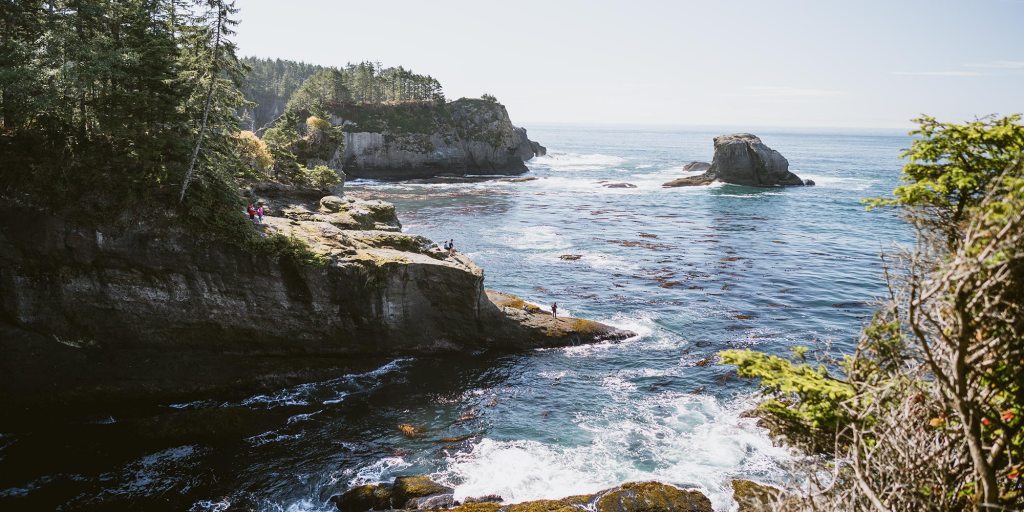
Week 47: If you don’t need it immediately, consider a slower shipping option.
Yes, we all love the convenience of two-day shipping. But the environment may not: Fast, custom deliveries can require vehicles to take inefficient routes, according to a recent CNN Business report on the issue, which can lead to heightened fuel emissions. Although it’s hard to be certain that expedited shipping always has a higher carbon footprint, it is often the case, especially for smaller retailers. Innovators are working on ways to make shipping more sustainable (think: trucks that can drive in a tight formation and use wind drag, rather than fuel, to move forward). In the meantime, opt for slower shipping options at least once this week.
Take part: Oct. 18–24, 2020
Week 48: Attempt to create zero food waste this week.
Food waste makes up 22 percent of the solid waste in U.S. landfills and it can take years to break down because there’s not usually enough air in landfills to aid in food decomposition. And according to the USDA, 30 to 40 percent of the food we produce in the U.S. often goes uneaten. Your challenge for the week is to stop contributing to those food waste numbers; use every bit of food you have in your fridge and pantry before it goes bad. The Zero Waste Chef has some great tips for accomplishing this, including cooking a clear-out-your-pantry dish (which means not buying any new ingredients) and storing leftovers in glass jars. Before you shop, take stock of what you have on hand so you don’t buy something that might go bad later on, and consider meal planning. You can also preserve or freeze foods that are about to spoil.
Take part: Oct. 25–31, 2020
Back to top
November
Week 49: Vote for life outdoors. Election Day is this Tuesday.
Elections matter to the outdoors. So your vote matters.
Take part: Nov. 1–7, 2020
Week 50: Set your thermostat one degree lower this week.
An average American home uses 15 percent of its utilities in space heating, which can be a large source of fossil fuel consumption. More than 40 percent of the nation’s home utilities run on natural gas. Setting your thermostat lower means you’re curbing your reliance on fossil fuels that much more. On chilly mornings and evenings, layer up and keep your feet and head warm. A thick pair of wool socks usually does the trick.
Take part: Nov. 8–14, 2020
Week 51: Check the sustainability attributes of items you buy regularly.
Have you considered how the products you use are made, and where they’re made? What about the impact those materials might have on the environment as they break down, and how the production and distribution of that product might contribute to high emissions rates? At REI, we’re committed to working with our brand partners and our own Co-op brand to create more sustainable products. In 2018, we rolled out our Product Sustainability Standards, which apply to all brands and products sold at REI.We’ve also made it simpler to buy more sustainable products: You’ll find product sustainability notes listed on items, highlightling whether the product is Fair Trade Certified™ (a label that denotes safe working conditions and sustainable livelihood), bluesign® certified (made with approved chemicals and resource-conservation practices), made with recycled materials and much more. Vote with your money and research where your products come from before you purchase; it matters.
Take part: Nov. 15–21, 2020
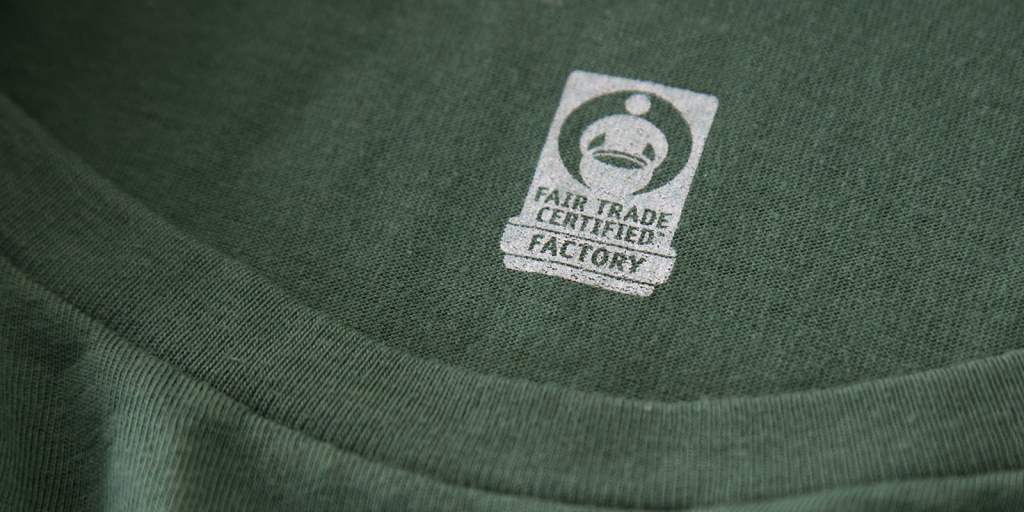 Week 52: Celebrate a year of action by joining REI to #OptOutside once again!
Week 52: Celebrate a year of action by joining REI to #OptOutside once again!
What a year. Thank you for doing your part to leave the world better than you found it. From all of us at REI, we’re proud of you and happy to have you on our side fighting for life outdoors. Sincerely, thank you. Now, if you’ll do us one more favor, join us once again to #OptOutside of Black Friday. See you out there!
Take part: Nov. 22–28, 2020
